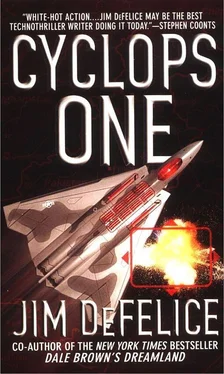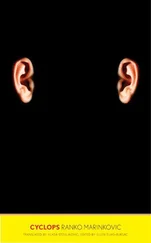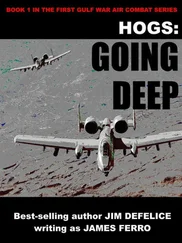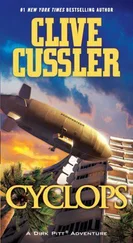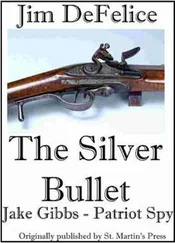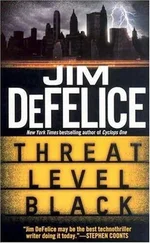“Have some action here,” he told Timmy.
“Is it ours?”
“Good question. I’m going to get back with the Pentagon people, see if they can get the Indians and Pakistanis to stop shooting up here.”
“Part the Red Sea next,” said Timmy.
Duke went over the map with the copilot, trying to figure out the area where their pickup would most likely be. McIntyre’s last call had been made from a building on the outskirts of a small town, but he’d been spotted and had to move. He hadn’t called back yet.
The pilots in the Velociraptors reported fighting nearby. Whether it had to do with McIntyre wasn’t clear.
Duke moved to the back and laid it out for his guys. As he expected, they nodded and threw in a few positive suggestions. Not one of them pointed out that finding the American alive was a serious long shot.
The FBI agent had a pained expression on his face.
“Something up?” the captain asked, plopping into the seat next to him.
“Yeah,” said the agent. “I should’ve brought more coffee. Two thermoses just don’t cut it overseas.”
“You think we’re going to find him?” Duke asked.
“Question is probably whether you’ll find him dead,” answered Fisher. “But you’re kinda stuck, right?”
“If things got tough, could you handle a weapon?”
“Depends,” said Fisher. “The place we’re landing, that a nonsmoking area?”
Duke started to laugh. “Smoking.”
“Then I’ll lead the charge.”
McIntyre felt the dryness in his mouth, his thirst returning, as he started toward the road. A low fence cut off some of the view to the right; he heard a truck coming and trotted toward the fence for cover, huffing and wheezing as he slid in. An empty flatbed passed a half-second later.
When it was gone he started to the left, walking roughly westward as he cut a diagonal toward the road. There was a ravine and then a rise on the opposite side, but there were some scrub bushes he might use for cover on the left if someone was coming.
As he reached the road he looked down it to his right. It curved sharply northward; he could see the edges and roofs of buildings beyond.
A figure appeared just taking the turn about two hundred yards away. Dressed in grayish white, the man wore a headband and carried a rifle.
Another figure appeared behind him.
McIntyre took a step back toward the building, then realized they’d look for him there. He ran instead along the road as he’d intended, holding the rifles in his hands. He heard gunfire, trucks, aircraft maybe; he sensed that the commotion wasn’t about him, but knew that if he stopped he’d be caught in it.
Fear overcame his exhaustion, and he ran at a decent pace for perhaps ten minutes, running at the side of the road as it curved first left and then right. A stone wall started abruptly at the right side of the road about ten feet past the second curve. The wall, chest-high, was made of pure-white stones that all seemed the same size. His breath finally failing, McIntyre ran behind it and collapsed to the ground, unable to move.
When his will returned, he saw that there was a house a short distance away. The whitewashed brick facade was punctuated by oversize windows with elaborate wooden frames, as if the glass were part of a shrine. A mountain rose several hundred yards behind the property, its bluish-black flank punctuated by the brown scar of a road.
McIntyre got up, making sure he hadn’t been followed, then began walking to the back of the house. A metal shed sat at the edge of the yard, collapsed on the ground, its roof and walls a bright mélange of rust and white paint. McIntyre went to the shed and examined it: If he had trouble in the house he could retreat there and hold off anyone who came out. He put one of the rifles down, propping it at the back so it would be easy to grab. He hesitated. The gun was easily seen and, if taken, might be used against him. McIntyre hid it under a loose piece of metal siding at the back of the ruins, then went to the house.
There was no door in the back but there were two large windows. Long drapes or curtains blocked off his view of the inside. He went to the one on the left and pushed; it gave way easily.
He stepped inside, heart pounding.
It took a moment for his eyes to adjust, and another for him to figure out that he was in a bedroom. There were two thick mats at the side on the floor, blankets; with a start he realized there was an infant tucked on one side of the bedclothes. Maybe two or three months old, it stared at him with one eye, following as he walked as quietly as he could to the doorway.
Not a baby: a doll. He realized that as he put his hand to the slatted door.
Before he could touch the doorknob, it pushed inward. He stepped back as a woman entered. She saw McIntyre and froze.
She had an infant against her chest. He’d already leveled the gun at her.
“Are you alone?” he said.
She didn’t answer. It wasn’t clear whether she understood or not. Her face had paled, and her eyes wore the glaze of a death mask.
Somehow her terror terrified him as well, though he was the cause of it. For a moment, he couldn’t speak.
“Alone?” he managed, voice cracking.
The woman nodded. He pointed with his other hand, motioning for her to back up. She took a step out into what he thought was a hallway but turned out to be a large common room. There was a TV and some upholstered chairs on one side, an old sewing machine, a pile of fabric, something that looked like a shrine on the right. Beads covered another doorway to the front of the house. A slatted wooden door similar to the one to the room he’d come in through sat opposite it. Staring at it, he went to the door, looked at her; neither she nor the baby moved, or even seemed to breathe. McIntyre rapped on it, then reached down and turned the knob. He flung the light door open with his hand. It was another bedroom, this one with real mattresses, though they were all on the floor. He couldn’t see anyone in the tumble of clothes and sheets.
“All right,” he told the woman. “I’m not going to hurt you.” He reached into his pocket and took out his phone.
The woman’s cheeks seemed to implode as the baby began to wail. Tears streamed from the mother’s eyes. McIntyre pushed her to the floor; he tried to be gentle but she collapsed in a tumble. He went back to the front room. There was a table there, a washing machine, a stove, an old refrigerator.
Something had happened to his phone. He couldn’t connect.
He went to the window, tried again.
Nothing.
Cursing, he punched the Power button twice, staring at the corner of the screen where the battery icon would appear. It had about a third of a charge left; it should work.
There were sounds outside. McIntyre turned and saw something moving by the window, then realized there was someone coming through the doorway. He spun around and pressed the trigger on his gun.
A small child, a boy of four or five, had come out from hiding near the closet where McIntyre had missed him earlier. By the time McIntyre realized what he had shot, the boy’s neck had been cut nearly in half by his bullets. In the next moment the child’s mother ran into the room, screaming, a knife in one hand and the little baby in the other. He took a step to the side as if he were a matador, pushing her slight body to the floor with his left hand. She rolled to the floor, the knife clattering away as she collapsed in a convulsing heap over the baby.
Blood from the dead child flooded around her. McIntyre took a step back, his head pounding. The whole house seemed to shake.
It was shaking: A helicopter was flying nearby.
Читать дальше
